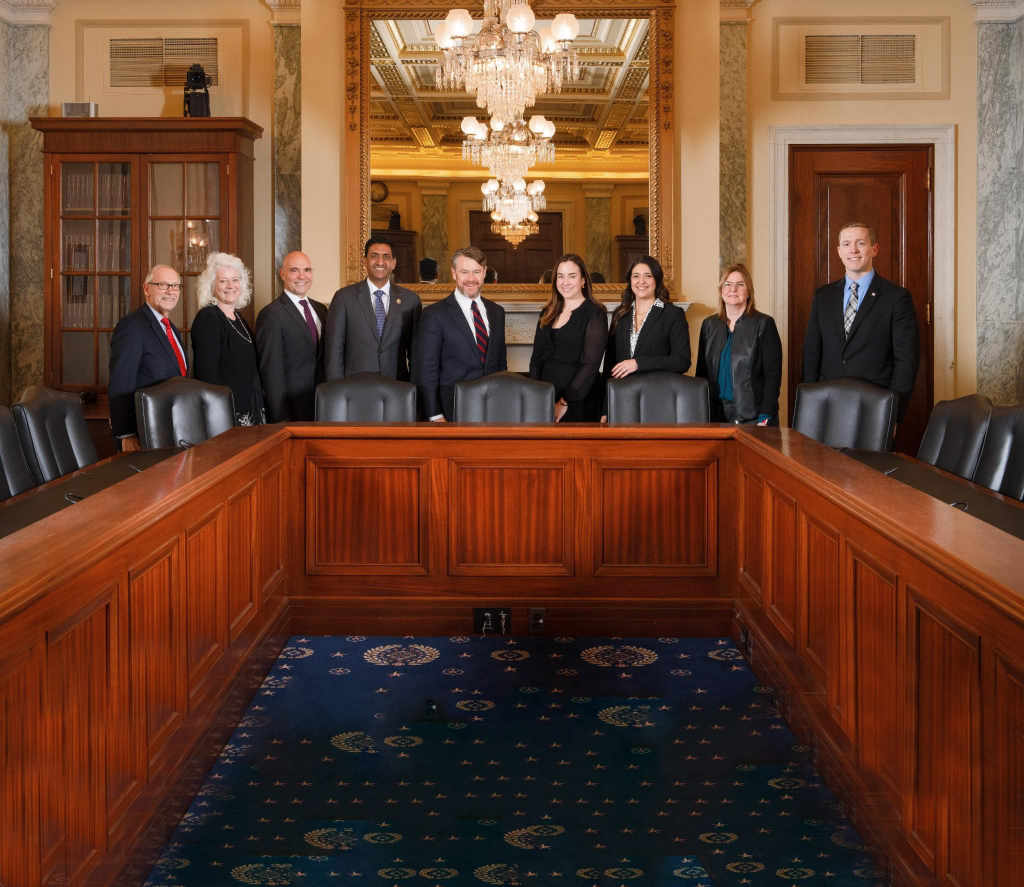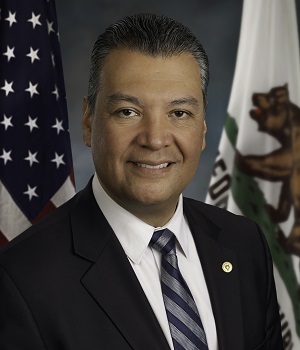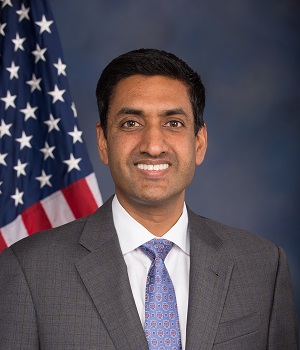
Preface
About the Commission and Report
Preface
About
Commission Background
In 2021, recognizing the national security implications of emerging biotechnology, Congress came together on a bipartisan basis to create the National Security Commission on Emerging Biotechnology (NSCEB). Established as part of the annual defense authorization bill (FY22 NDAA) the Commission was given a clear and urgent mandate: to conduct a comprehensive review of emerging biotechnology’s impact on national security and provide practical recommendations to preserve American dominance in this field.
The NSCEB is an independent commission currently comprised of 11 commissioners appointed by a bipartisan group of Members of the House and Senate. We include four Members of Congress—two from each chamber, and two from each party—and seven prominent industry leaders, academic experts, and former government officials from the defense and intelligence communities.
Our work is short-term in nature. Our directive is to provide recommendations and support their implementation, after which point—specifically, eighteen months after the report’s publication, as required by statute—this Commission will dissolve.
NSCEB Commissioners

Senator Todd Young
Chair

Dr. Michelle Rozo
Vice Chair

Senator Alex Padilla

Representative Stephanie Bice

Representative Ro Khanna

Paul Arcangeli

Dr. Angela Belcher

Dawn Meyerriecks

Dr. Eric Schmidt

Dr. Alexander Titus

Dr. Dov Zakheim
Report Methodology
Our final report is the product of two years of intensive study. Its findings and recommendations reflect input from hundreds of experts and government officials both in the United States and abroad, covering every facet of biotechnology and national security. In total, we met and interviewed more than 1,800 people from over 30 countries on six continents. This report has also undergone a formal review process by all Commissioners and reflects the unanimous consensus of our Commission.
While this report has been submitted to the Congressional defense committees and the President, we have also made it fully available to the American public. This is intentional: to win the biotechnology race, we must mobilize not only policymakers but also the private sector and general public in support of a targeted and aggressive national biotechnology strategy.
Report Scope
This report lays out a set of practical recommendations that, if adopted, will both advance our progress and slow that of our strategic adversaries—particularly China—in the race for biotechnology supremacy.
The Commission conducted research from April 2023 to February 2025 to inform this report. Our research is ongoing, and we anticipate expanding on these recommendations in the coming months as the technology advances and the policy landscape evolves.
Within our scope of emerging biotechnology, we have focused primarily on the design and engineering of biological systems, devices, and parts. Other biotechnology applications that build toward far-future capabilities, such as brain-computer interfaces, are not the primary focus of this report.
We define national security broadly, reflecting today’s complex geopolitical realities. We understand national security to encompass traditional defense issues as well as the broader considerations of economic resilience and competitiveness, health security, food security, and energy independence and security.
This report provides recommendations only within the scope of biotechnology. Many related fields, such as biodefense, food security, and energy security, do not exclusively implicate biotechnology. In the case of biodefense, for example, biothreats exist without biotechnology, and remain lethal and prevalent to this day.
Organizations such as the Bipartisan Commission on Biodefense aim to address the full range of biothreats. We do not seek to duplicate this work. Instead, we present recommendations pertaining to biodefense in the context of emerging biotechnology, specifically both the challenges and potential solutions this technology raises. For example, our recommendations—including proposals for a Department of Energy-led Web of Biological Data (WOBD), pilot-scale precommercial manufacturing facilities, and grand research challenges—will, if enacted, enable U.S. researchers to produce medicines that serve as a defense against biothreats. But biotechnology is only part of the solution. The work of the Bipartisan Commission on Biodefense and the inaugural Department of Defense Biodefense Posture Review cover important areas outside the scope of this report.
Similarly, while we address biotechnology applications across many industries, we do not cover the full span of any specific industry sector. Emerging biotechnology will play an increasingly critical role in agriculture, pharmaceuticals, and other key industries, but it will not provide the sole solution to the challenges these industries face. Biotechnology, for example, will supercharge efforts to help the United States domestically produce the active pharmaceutical ingredients (APIs) needed for essential medicines, but it alone cannot solve the major vulnerabilities in our health supply chains. The United States will need to identify ways to onshore today’s generic drug manufacturing, including through policy and legislation.
We separately issued a classified annex to this report that provides additional details on how policymakers should prioritize biotechnology for U.S. national security. The annex is available upon request to those with the appropriate clearance and a validated need to know.
However, there is far more that policymakers could do beyond the recommendations presented in these reports to address this expansive and critical set of national and economic security issues.
Next Steps
Over the next 18 months, this Commission will work with Senators, Members of Congress, Congressional staff, and the Administration to support the introduction and passage of the recommended legislation outlined in this report. During this time, we also intend to continue work on select areas to further develop targeted recommendations. We aim to provide, for example, more specific recommendations on regulatory actions tailored to each of the three individual regulatory agencies.
The mission ahead is clear. We stand on the cusp of massive developments in emerging biotechnology. If we act now, the United States can secure its position as the biotechnology leader in the world for decades to come. We look forward to working with our partners in government and industry to bring about this future.